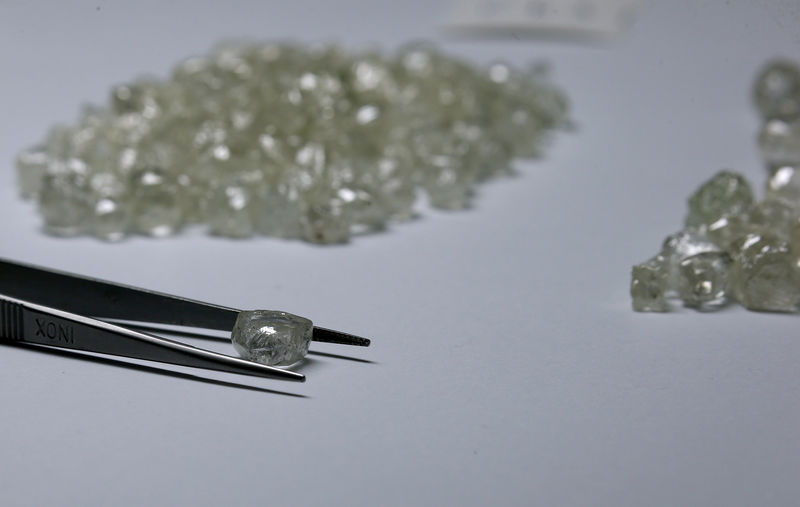LONDON (Reuters) - Anglo American's (L:AAL) diamond subsidiary De Beers is scaling back production after trade tensions between the United States and China contributed to a 27% first-half fall in diamond earnings, its CEO said.
De Beers CEO Bruce Cleaver cited a range of factors in an interview, including trade tensions, the U.S. government shut-down that ended in January and Hong Kong anti-government protests, which he said had left the diamond market in a state "not dissimilar from 2014-15".
The diamond market was weak in 2014-15 in the run-up to a deep commodity price fall linked to declining Chinese demand for raw materials.
"A nasty cocktail is affecting the mid-stream, with too much polished (diamonds), financial pressure from the banks and a slow down in demand for jewellery," he said.
But demand was still expected to grow in the U.S. market, the world's biggest, meaning stock levels should become more balanced in the second half of the year, Cleaver said.
De Beers is working with its customers and limiting supply, the company said. In the first half it reduced rough diamond production 11% year-on-year.
While the diamond division fell, Anglo American on Thursday reported a 19% increase in overall first-half underlying earnings before interest, tax, depreciation and amortisation (EBITDA), largely because of high iron ore prices.
The group cites future diamond demand as one of the principle risks it faces.
De Beers has been fighting competition from laboratory-grown diamonds by producing its own synthetic diamonds from its Element Six subsidiary at a lower cost than peers.
The impact had been to reduce overall wholesale prices for laboratory-grown diamonds by around 60%.
Cleaver said De Beers was still working to eliminate what he said was customer confusion concerning the difference between mined diamonds and those produced in laboratories.
De Beers is banking on a long-term future for natural diamonds and is investing $468 million in a new vessel to mine diamonds off the coast of Namibia.

Cleaver said the project was on track to add an estimated 500,000 carats per year from 2022.